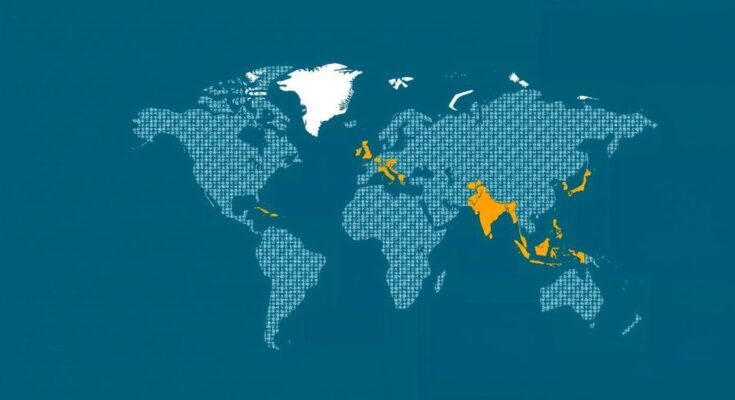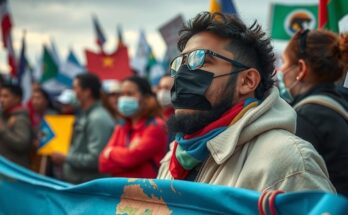The COP29 Climate Summit in Baku proposes a draft agreement for developed nations to contribute $250 billion annually by 2035 to aid developing countries in climate efforts. The proposal has encountered criticism for being inadequate and costly. The negotiation aims to raise $1.3 trillion in climate finance annually, highlighting the need for robust funding and collective responsibility among nations.
The COP29 Climate Summit has proposed a draft agreement urging developed nations to allocate $250 billion annually by 2035 to assist economically disadvantaged countries in addressing climate change. However, this proposal has faced significant criticism from various stakeholders. The ongoing conference in Baku, Azerbaijan, reveals persistent divides between affluent governments hesitant to commit to substantial financial contributions and developing nations advocating for increased support.
Juan Carlos Monterrey Gomez, Panama’s Special Representative for Climate Change, expressed frustration, declaring that the suggested amount falls short of adequate support. Furthermore, a European negotiator voiced concerns over the draft’s cost implications, indicating that it lacks sufficient provisions to broaden the contributor base for funding.
The proposed agreement aims to raise a total of $1.3 trillion in climate finance by 2035 from both public and private sources. This goal aligns with economists’ recommendations for developing nations to secure at least $1 trillion annually by the decade’s end. Nevertheless, bridging the financing gap between governmental pledges and private investment remains a complex challenge, as highlighted by negotiators attending the summit.
The urgency of the negotiations was reiterated by U.N. Secretary-General Antonio Guterres, who underscored the necessity for a robust agreement and cautioned that failure to reach consensus is not an option. Despite these challenges, Daniel Lund, a negotiator from Fiji, emphasized the inadequacy of the proposed funding amount in light of the significant needs identified. As the summit nears its conclusion, stakeholders are hopeful for a constructive resolution amid ongoing disagreements.
The COP29 Climate Summit represents a critical international meeting aimed at addressing the global climate crisis. Scheduled in Baku, Azerbaijan, the summit seeks to foster a collaborative funding agreement to finance climate initiatives, particularly for developing nations that often bear the brunt of climate impacts despite contributing the least to the problem. The proposed financing aims not only to provide immediate support but also to establish a sustainable framework for future climate resilience efforts. Historically, these conferences reflect deep divisions between wealthier nations resistant to high financial commitments and poorer nations advocating for increased support to mitigate climate change effects, thus setting the stage for intense negotiations and debates.
In conclusion, the COP29 Climate Summit is highlighting the ongoing struggle to achieve a balance between developed and developing nations in climate financing. The proposed $250 billion annual commitment from wealthy countries has been deemed insufficient by many, raising concerns about the effectiveness of current negotiations. With a broader target of $1.3 trillion in climate finance by 2035, the urgency to secure agreements becomes paramount as the summit approaches its conclusion. The call for significant financial support underscores the critical nature of global cooperation in combating climate change.
Original Source: stratnewsglobal.com




